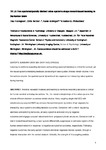Two spatiotemporally distinct value systems shape reward-based learning in the human brain

Date
2015-11Author
Subject
Metadata
Show full item recordAbstract
<jats:title>Abstract</jats:title><jats:p>Avoiding repeated mistakes and learning to reinforce rewarding decisions is critical for human survival and adaptive actions. Yet, the neural underpinnings of the value systems that encode different decision-outcomes remain elusive. Here coupling single-trial electroencephalography with simultaneously acquired functional magnetic resonance imaging, we uncover the spatiotemporal dynamics of two separate but interacting value systems encoding decision-outcomes. Consistent with a role in regulating alertness and switching behaviours, an early system is activated only by negative outcomes and engages arousal-related and motor-preparatory brain structures. Consistent with a role in reward-based learning, a later system differentially suppresses or activates regions of the human reward network in response to negative and positive outcomes, respectively. Following negative outcomes, the early system interacts and downregulates the late system, through a thalamic interaction with the ventral striatum. Critically, the strength of this coupling predicts participants’ switching behaviour and avoidance learning, directly implicating the thalamostriatal pathway in reward-based learning.</jats:p>
Collections
Publisher
Place of Publication
Journal
Volume
Issue
Pagination
Number
Recommended, similar items
The following license files are associated with this item:

